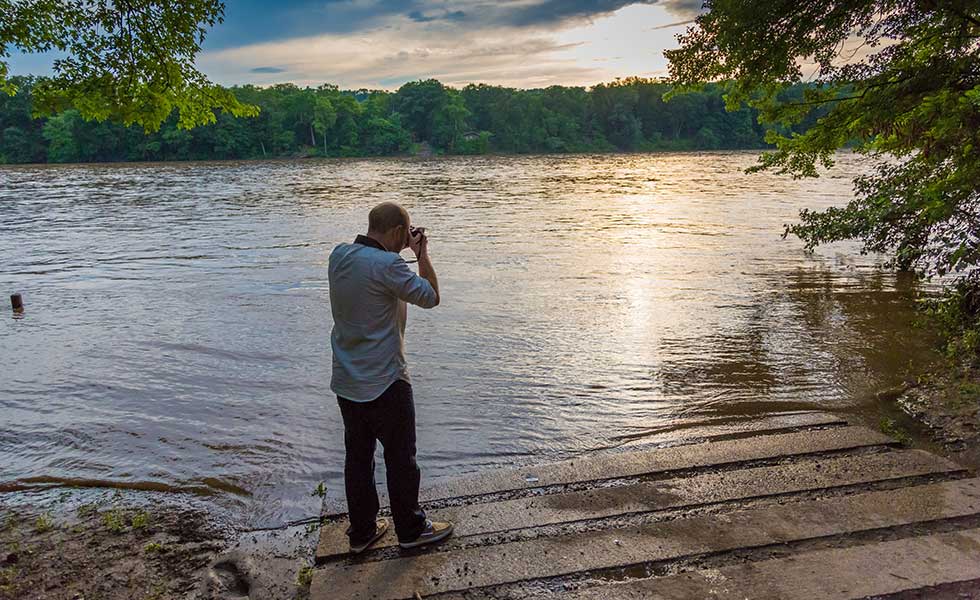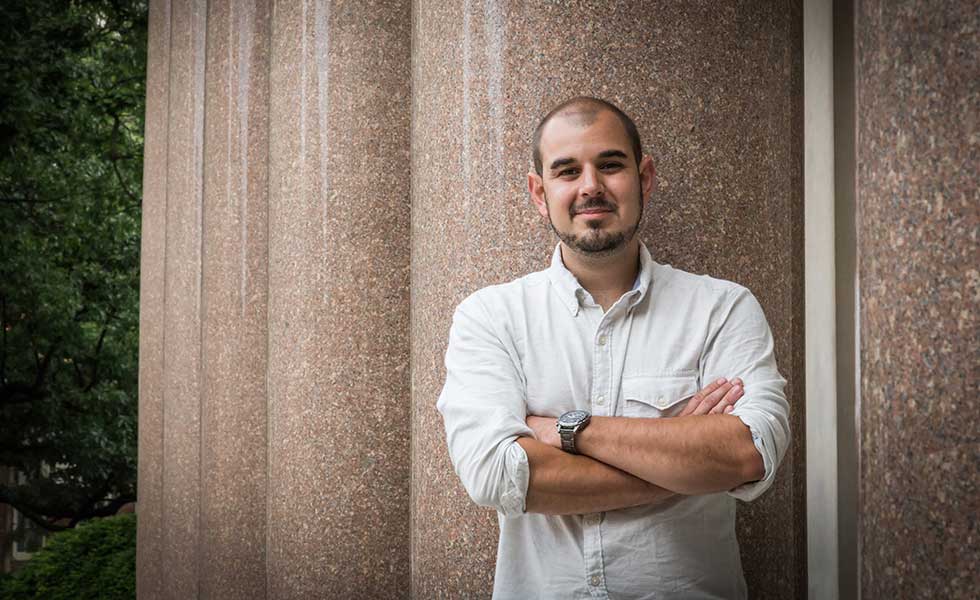When someone talks about a freelancer, we usually think of a programmer, designer, or blog writer. Almost no one would think of a freelance lawyer. But the freelance lifestyle is expanding, there are more and more different jobs that are done remotely and using freelance platforms. So, this time we present to you Jeffrey Fucci, a freelancer with a not so common profession – a lawyer. Jeffrey grew up in a suburban area of New Jersey right outside of New York City, near an environmental preserve called the New Jersey Meadowlands. It’s a very complicated, beautiful, busy place.
PERSONAL LIFE
– Is there a particular reason why you became a lawyer, or was it a combination of different factors?
I was inspired by other lawyers, particularly ones I had a chance to work with at a state agency who were responsible for economic growth and environmental preservation in my community. I wanted to have the knowledge and authority to make an impact similar to the impact my mentors were making.
– Did you have the support of your family to become a freelancer? Or it’s a decision you made yourself.
For me, becoming a freelancer really was a growth spurt: one morning you wake up, and you are too tall for all of your clothes. It was the same way for me working with law firms. They are a very common career pathway for attorneys in the NYC Metro area. Your law school classmates go to work for them. Your career services advisors in law school tell you to work for them. Their billboards loom over the New Jersey Turnpike. But one day they just became an awkward, uncomfortable fit. My wife is always saying to wear the clothes that actually fit you, not the clothes you think you should fit into. Wise advice like that has been just one of the many ways she has been supportive of me as I have grown my legal services business.
– How has your freelance life affected your family life/personal life?
Related Posts:
It has made me a better husband, better son, and better dog companion. I’d like to think that I carve out quality time for my family as seriously as I schedule appointments for clients every day.
CAREER
– Can you tell us something about your studies at Seton Hall University?
Very proud to be a Seton Hall Pirate. I am forever grateful to the English Department and Communication Department professors who allowed me to be creative in my undergraduate studies. Their open-mindedness allowed me to be not only educated, by enriched.
– After that, you went to Vermont Law School. Was it a continuation of your education or was it a turning point, a change of career?
It was definitely a change in career – I worked as a newspaper reporter and in public relations for nonprofits for almost ten years before attending law school. And all of this was in my home State of New Jersey for companies and nonprofits I had close relationships with. Heading to the mountains of Vermont to seek a law degree was a hard reboot.
– I can see from your resume that you worked as a public relations professional, nonprofit manager, and policy advisor. Can you tell us something about those days?
I can say with pride that during the early years of my career I was very involved with my local community. That was uniquely important to me in those years, and although Vermont Law School taught me to think globally, I was glad I had the chance act locally first.
– What influenced you to direct your career towards a freelance lifestyle?
I had reached a level of knowledge in my profession where I knew that I could provide all of the legal services clients might need, for a price point and skill level they would be pleased with, without the need for the managerial overhead.

FREELANCE CAREER
– When you started freelancing, did you have clear goals that you wanted to achieve, or did you adjust along the way?
In the beginning, it was just work as hard as you can, for as many clients as you can. With time I became more refined, seeking a certain type of client, a certain type of experience that would result in both of us being more satisfied and maintaining the relationship looking forward.
– The best advice you got or read at the beginning of your career?
My wife said to me “work with people who are going to help you.”
– Have you worked on any freelance platform other than UpWork? If so, what are the experiences.
I’ve tried some other platforms and remained open, but for me it’s really UpWork and brick and mortar clients.
– What are the reasons for your decision to work at UpWork?
The platform provides a great access point to a variety of interesting jobs and clients. I can’t think of a better built, broader base that’s out there right now for independent professionals.
– What are the advantages of a freelance lifestyle for you?
The direct relationship between work and reward.
– And what are the disadvantages?
You have to stay focused, stay organized, and stay hungry every moment of every day. And we are all human, so that can be hard some days.
– Are you planning to continue working as a freelancer or are you considering starting a law firm or company?
I have a couple things going in addition to UpWork, including growing my own firm, J. Fucci Law, LLC, which is leading the way in remote legal services, and joining on as in house counsel to a number of established companies. Hoping to grow onward and upward from there!
FREELANCING

– Do you work from home, or do you use some other spaces?
I like to change it up, sometimes preferring the bustle of a café or a shared office to my home office, but I do recommend that anyone living the freelance lifestyle take care of themselves with a comfortable, productive space.
– Which soft skills were the most challenging for you?
Time management can be a challenge in that I don’t want to leave a client or a job until it’s done. And the practice of law involves a lot of call and response; you’re waiting for other parties in a contract, other lawyers in a dispute, in short, other people. Sometimes you have to be willing to place a matter on pause to move onto the next one to have a productive day.
– According to all statistics, freelancing is on the rise. Is that the situation in your profession?
I can’t say for sure. I think many attorneys wish they could maintain their own direct relationships with clients, and I know a good number of them, especially the ones early in their career, want to help people. They shouldn’t be afraid to trust their instincts, and I promise the bills will still get paid.
– Artificial intelligence is slowly taking over some jobs. Do you think AI can threaten your job or maybe help you?
I think it will only help because this is still a very human profession. We have leather bound volumes full of case law, for example, but lawyers still write memos and judges still render decisions. I think we have some time yet.
– What has benefited you the most to become a successful freelancer? Your education, certain books, courses, instructions on freelance platforms or something else?
My education, but primarily the skills of versatility that was taught to me by the professors at Vermont Law School, both in terms of legal scholarship and how they lived their lives.
– What is the biggest problem or awkward situation you have faced as a freelancer?
It can be difficult when you are deep into a task and realize that there was a miscommunication upfront. A house can’t stand on a shaky foundation, and then you have to make the tough decision, which is usually to tear it down and start over. Who owns the miscommunication? The awkward part is sometimes having to own it even when you think it wasn’t your fault, so you can get the structure built and livable.
Listening and patience are keys to success.
Jeffrey Fucci
TIPS
– Several factors are important for success. Can you name some of the most important for you?
Listening and patience are keys to success.
– If you had to single out one characteristic that is most important for the success of a freelancer, what would it be?
Setting clear expectations upfront about what you can and will do for the client.
– What is the best way to organize multiple jobs and private life?
Surround yourself with people who care about and support your success, so you have support when you need it, someone to call when you’re between jobs, whether you’re in the car or online.
– What steps do freelancers need to take to be more successful, in your opinion?
Freelancers need to remember to build their portfolios every step along the way. What else can the job do for you, besides just a paycheck? Look for ways to utilize every positive client experience as a stone in the path to the next one.
– The best advice for those who are considering a freelance career?
If you are thinking about it, you already have what it takes.
All photos by Joseph Cutalo, of Joseph Cutalo Photography





